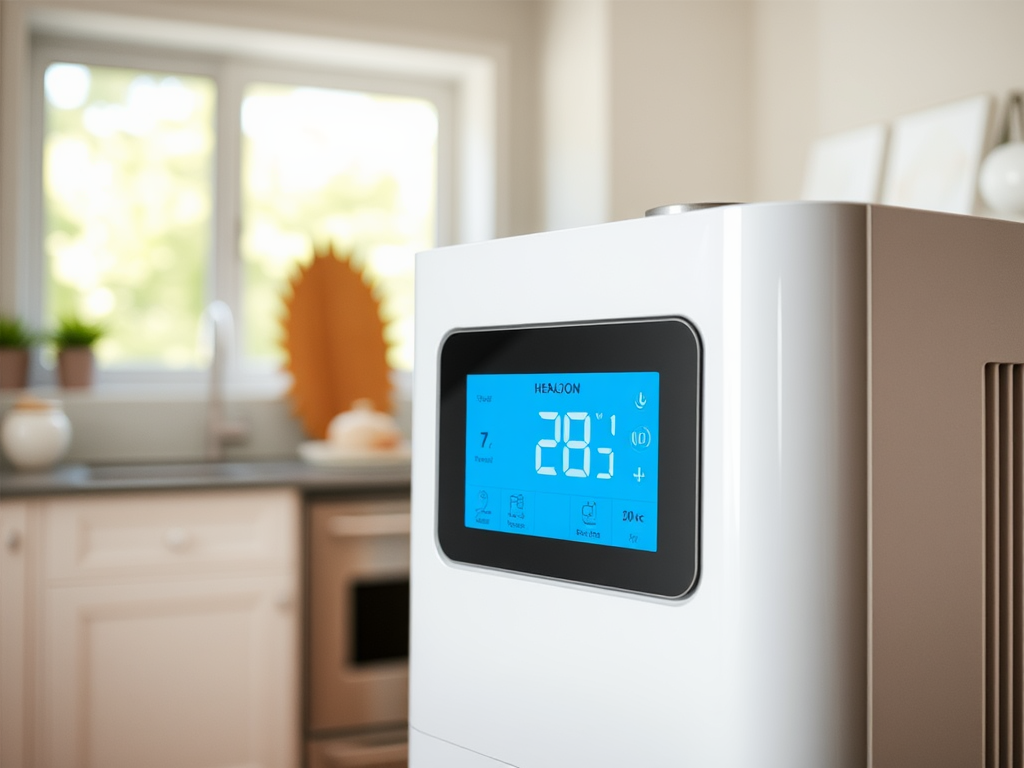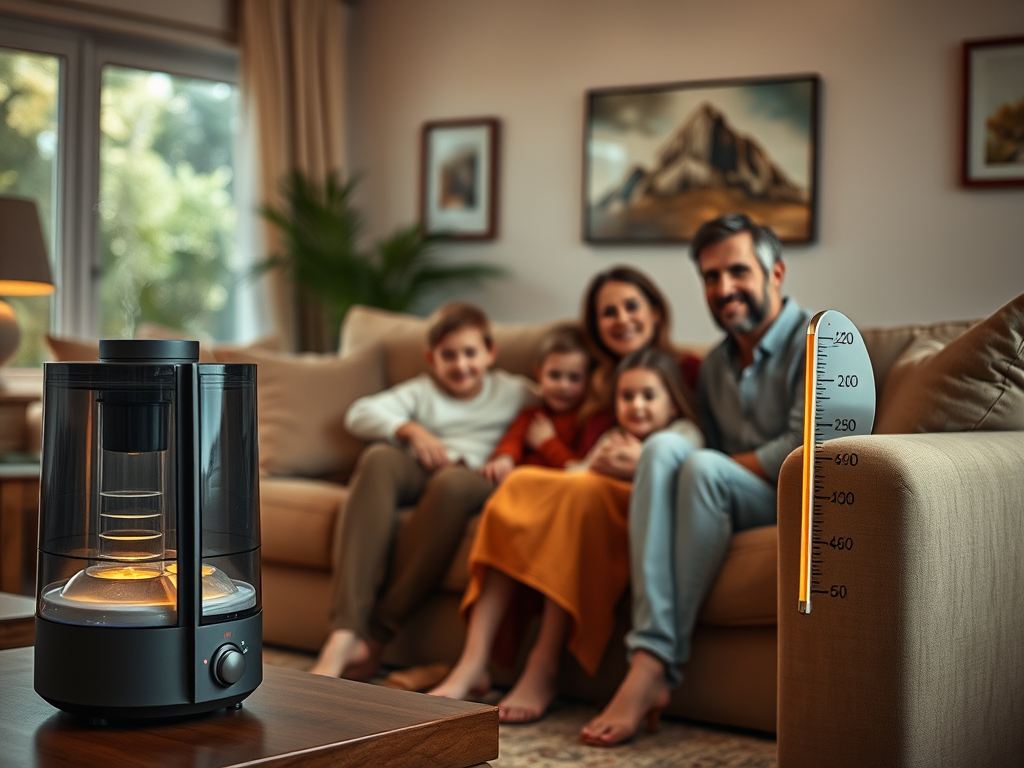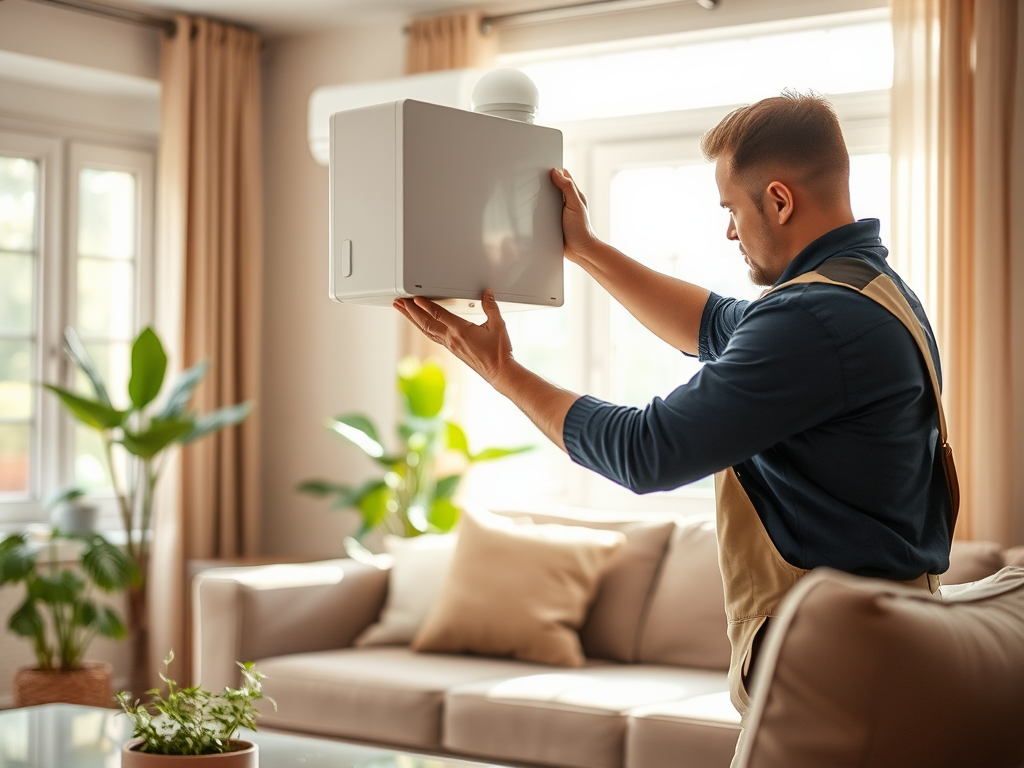As the quest for energy efficiency intensifies, HVAC systems have emerged as pivotal players in the narrative of indoor comfort and sustainability. While many homeowners focus on optimizing their heating and cooling components, one often-overlooked hero in this story is the humble HVAC humidifier. These devices don’t merely combat dry air; they work synergistically with your heating and cooling systems to enhance overall energy efficiency. By effectively regulating humidity, HVAC humidifiers can alter the very dynamics of thermal comfort in your home or business, leading to significant energy savings. This article explores how integrating a humidifier can dramatically impact energy efficiency, providing insights into its operational framework and practical benefits.
Moreover, understanding the science behind humidity and its effects on our environment is crucial: too little humidity can make the air feel colder than it is, prompting you to crank up the heat. On the other hand, the right level of moisture can create a more comfortable indoor atmosphere, allowing you to set your thermostat lower. The synergy between humidity control and intelligent HVAC operation is not merely a matter of comfort but also a hefty opportunity for reducing energy bills. As we delve deeper, you’ll discover how these advantages translate into tangible savings on your utility expenses, ultimately benefiting both your wallet and the planet.
Understanding HVAC Humidifiers

HVAC humidifiers are integral elements within heating, ventilation, and air conditioning systems, designed to maintain ideal indoor humidity levels. They can operate autonomously or be integrated into existing HVAC units, making them versatile for various applications. While manual humidifiers require periodic adjustments based on seasonal changes, automatic versions can self-regulate and adjust humidity levels based on current conditions, providing hassle-free operation.
There are primarily two categories of humidifiers: standalone units and integrated systems. Standalone units are independent and can be moved from room to room, whereas integrated systems work directly with existing HVAC infrastructure. Each type serves a specific purpose, allowing users flexibility in achieving their desired indoor climate.
How Humidity Affects Energy Efficiency

Humidity plays a critical role in thermal comfort and energy consumption. When humidity levels are properly maintained, the human body can perceive temperature more accurately. When the air is too dry, you may feel chilled even when the thermostat is set at a comfortable temperature. Consequently, you could be driven to increase your heating settings, inadvertently leading to higher energy consumption.
Maintaining balanced humidity not only promotes comfort but also fosters energy efficiency. Here are some benefits of optimal humidity levels:
- Reduced need for heating and cooling due to better thermal comfort.
- Lower thermostat settings, saving energy and costs.
- Decreased wear and tear on HVAC systems, enhancing lifespan and efficiency.
| Humidity Levels | Temperature Perception | Action Required |
|---|---|---|
| Below 30% | Feels colder | Increase heating settings |
| 30% – 50% | Comfortable | No action needed |
| Above 50% | Feels warmer | Decrease heating settings |
The Impact of HVAC Humidifiers on Energy Savings
The integration of HVAC humidifiers can lead to quantifiable energy savings, with many studies indicating a reduction in utility bills. When air is humidified, it has greater thermal capacity, allowing for lower energy requirements to heat or cool spaces effectively. For example, homes equipped with HVAC humidifiers have reported savings of up to 20% on heating costs during winter months.
In real-world applications, businesses and homeowners have shared compelling case studies illustrating the financial benefits. Here’s a summary of these insights:
- A restaurant reported reducing heating costs by 18% after installing a whole-house humidifier.
- A residential property experienced a 15% reduction in monthly energy bills following the installation of an automatic humidifier system.
- An office building noted improved employee comfort and productivity alongside a significant drop in energy usage costs.
Selecting the Right Humidifier for Energy Efficiency
Choosing the right HVAC humidifier involves careful consideration of several critical factors. The size and capacity of the humidifier should align with the total area it will serve to avoid inefficiency. An oversized unit can lead to excessive humidity, while an undersized model may struggle to adequately humidify the space.
Integration with existing HVAC systems is another crucial aspect. Certain humidifiers work seamlessly with central heating and air conditioning units, while others are standalone products that may require additional adjustments. Consider the following features when selecting an energy-efficient humidifier:
- Low water usage technology
- Automatic humidity control systems
- Noise levels during operation
Maintenance and Best Practices for Optimal Performance
Regular maintenance is essential to ensure your HVAC humidifier operates at peak efficiency. Neglected humidifiers can lead to excess moisture in the air, creating an environment conducive to mold growth and damaging furniture. To avoid these issues, establish a cleaning schedule that includes:
- Regularly changing or cleaning filters.
- Inspecting water lines for leaks.
- Monitoring and adjusting humidity levels as needed.
Additionally, keeping an eye on humidity levels using hygrometers can help ensure that your humidifier is providing the optimal environment for both comfort and energy efficiency.
Conclusion
The integration of HVAC humidifiers plays a significant role in enhancing energy efficiency within heating and cooling systems. By controlling humidity levels, these devices contribute not only to personal comfort but also to substantial energy savings and reduced operational costs. Understanding the nuances of this technology allows homeowners and businesses to make informed decisions, maximizing both comfort and cost-effectiveness. Investing in quality humidification solutions is not just a wise financial choice; it’s a step towards a more sustainable and energy-efficient future.
Frequently Asked Questions
- What is the main benefit of using an HVAC humidifier? The main benefit is improved energy efficiency by maintaining optimal humidity levels, leading to comfort and reduced energy consumption.
- Can an HVAC humidifier lower my energy bills? Yes, by enabling you to set your thermostat at a lower temperature while still feeling comfortable, you can reduce heating and cooling costs.
- How do I know if I need a humidifier? Signs include dry skin, static electricity, and inconsistencies in temperature perception, particularly in winter months.
- What maintenance is required for HVAC humidifiers? Regular cleaning, checking water levels, and monitoring humidity levels are essential for optimal performance.
- Are there energy-efficient humidifiers available? Yes, many modern HVAC humidifiers are designed with energy efficiency in mind, often using less water and electricity than older models.
